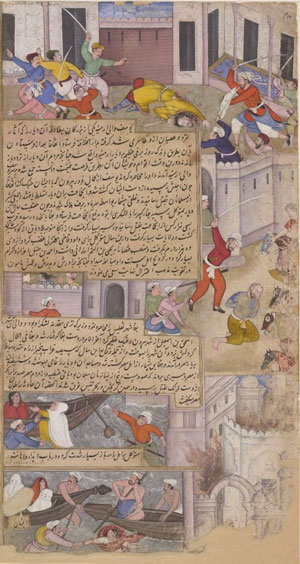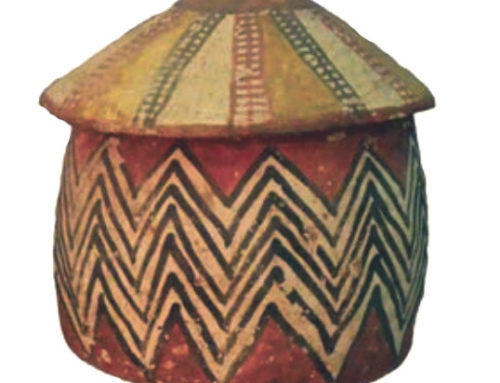Forever joined by a coincidence in dates … well, not that much of a coincidence, because with medieval military campaigns always starting in the spring and ending in the fall, naturally October has a large share of the really crucial battles. These two battles have other things in common too: they’re both battles over the power and extent of the Islamic Empire, and how it will operate.
Battle of Karbala
The Battle of Karbala was fought on the 10th of October, 680 AD. On one side was the Umayyad army, which thought that the Caliphate should be inherited from father to son, from the Caliph Muawiyah to his son Yazid. On the other side were the followers of Ali, who thought that the new Caliph should be chosen by the people, not inherited. The first group won the battle. Ali himself was killed. Yazid was Caliph, and the Caliphate was inherited.
Who are the Shiites?
Mohammed and early Islam
Who were the Umayyads?
The religion of Islam
Today we call the first group the Sunni and the second group the Shia. Thousands of Shia still go to Karbala (in modern Iraq) every year to mourn the death of Ali. Most Islamic people today are Sunni, but there are still millions of Shiites too. You could see this as an early part of an ongoing struggle to decide what Islam is about. Is it a continuation of earlier Roman and Sassanian empires in SW Asia, and mainly about law, peace, bureaucracy, and order? Or is it a radical freedom to experiment with new ideas, within the loose framework of the Quran?

Abbasid caliph al-Muttawakkil destroys the Shiite shrine of Hussein at Karbala (850 AD)
Battle of Poitiers
The Battle of Poitiers was also on the 10th of October, but half a century later, in 732. The Frankish leader Charles Martel – Charles the Hammer – fought off an invasion of Umayyad Muslim troops. Islam had already conquered Spain and was thinking of expanding into southern France. This battle was important for the Franks, because they needed to keep control of Toulouse and Marseilles, their Mediterranean ports. Those ports allowed them to sell wool and furs and enslaved people to ship traders. They could buy wine, medicines, steel, and sugar.

Shiite shrine at Karbala (from the 1800s AD): the tomb of Ali’s son Hussein
On the Islamic side, we could say that, having won the Battle of Karbala, the Umayyads wanted to reconstruct the old Roman Empire as an Islamic Empire. They wanted to conquer all the land around the Mediterranean, at least, so they could get rid of pirates, enforce peace, and encourage the shipping trade.

Umayyad mosque in Cordoba, reusing Roman columns in a metaphor about empire-building
Both battles, if they had gone the other way, might have led us into a very different world. If Ali had won the Battle of Karbala, we might have a much looser, more radical and religious version of Islam, which never established big empires. If Charles Martel had lost the Battle of Poitiers, we might have had an Islamic reconstruction of the Western Roman Empire in which Christianity appeared only as a short blip on the way to Islam. Would an Islamic Europe have been richer? Would they have turned to Atlantic ocean sailing as soon? Or sooner?
Want to see more of these posts? Follow us on Twitter @Quatr_us.
Support this blog by visiting our Patreon: your $5 monthly takes the ads off five pages on this site. When pledges reach $1000 ($900 to go!) I’ll take all the ads off the entire site, for all of our visitors.




